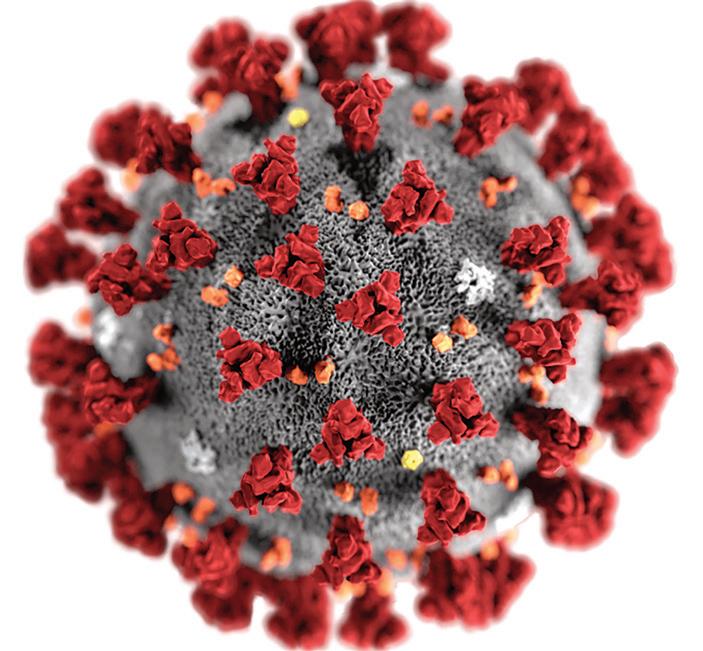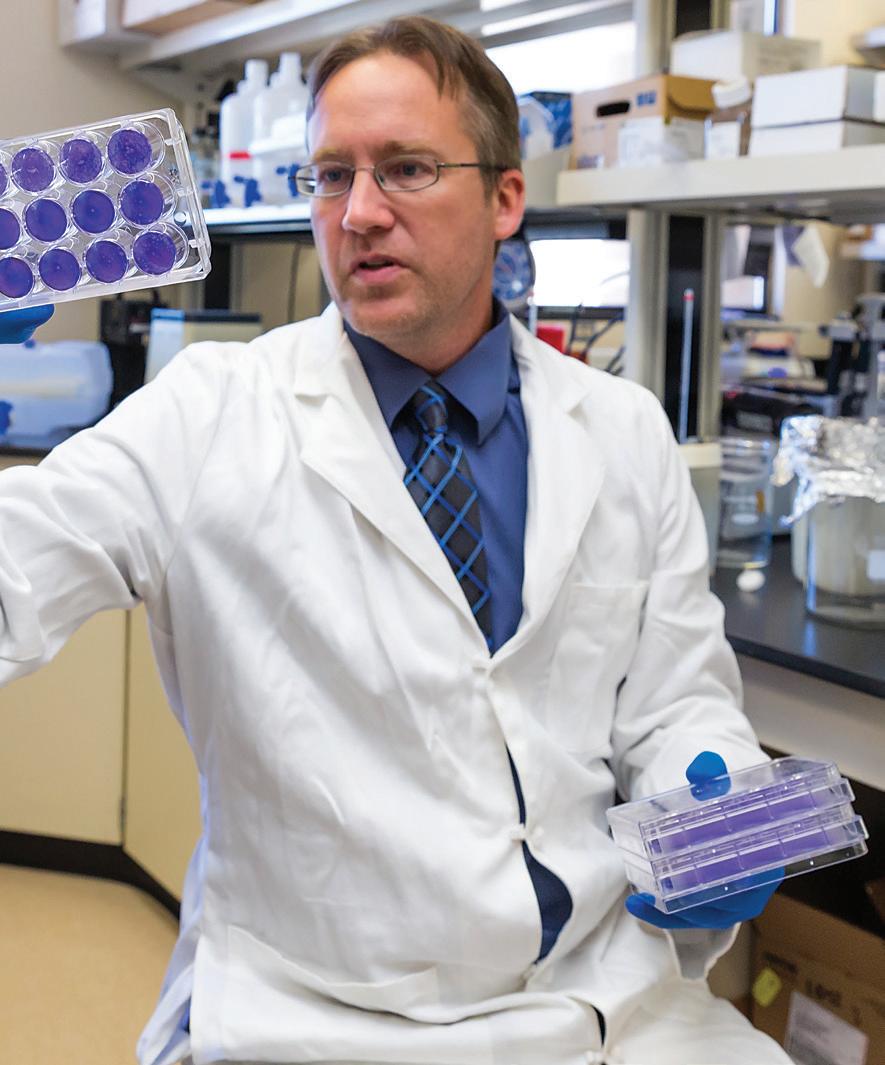
4 minute read
Addressing Coronavirus Concerns
Answers from Immunologist Dr. Steven Bradfute
The pandemic caused by the Coronavirus (COVID-19) has affected all aspects of our society, and there are plenty of concerns and questions about our health and safety, how we got here, and what comes next. ENMU alumnus and immunologist Steven Bradfute, Ph.D. (BA 98) is a research assistant professor for the University of New Mexico School of Medicine. He offered his expertise and advice in these uncertain times.

Q: How serious is this outbreak, in your opinion?
A: The virus is rapidly spread by the respiratory route (droplets that stay in the air for a while that can be inhaled) or by being deposited on surfaces (like doorknobs, and someone can get infected by touching the surface and then touching their nose, mouth, or eyes). The concern is with the rapid spread, the severe disease it can cause in older individuals and those who have underlying medical conditions (like diabetes, heart disease, cancer, or lung disease). Overall, the lethality rate (1-3% right now, although that could lower as more asymptomatic or mild cases are found) is low compared to some viruses (Ebola – 45%, hantavirus – 35%) but higher than flu (0.1%). More than 80% of the people who get the new coronavirus will have mild or no symptoms. It’s the high-risk groups that are concerning. But it’s also important to realize scale – each year, about 30 million Americans get the flu; so far, as of March 26, 2020, about 81,000 Americans have gotten the new coronavirus. So it’s a serious concern, but the goal is to limit its spread so it causes less damage than the flu.
Q: Do you have any data as to how fast this disease is spreading?
A: There is a lag in testing, so it’s hard to know how much of the rapid increase in disease is due to new spread of the virus versus increased testing. Worldwide there’s about 205,000 cases.
Q: Is there a possibility the change of seasons (from spring to summer) could affect this virus’ spread?
A: It’s possible, but we don’t know. Typically respiratory viruses aren’t common in the summertime, because a) droplets from someone sneezing/coughing don’t stay as long in the air in the summer as they do in the colder weather, b) people are more likely to stay indoors in the winter so there is increased person-to-person contact and therefore more spread of the virus, and c) when your upper respiratory system is a little colder than normal (due to inhaling cold air) it’s easier for the virus to replicate and harder for your immune cells to respond well.
But we don’t know if this virus will go away in the summer and whether it will return in the fall/winter.
Q: What’s the most important thing for people to do as we deal with this situation?
A: Remember that they can help stop the spread of the virus (or other respiratory viruses) by staying six feet away from other people if possible, decontaminating surfaces, washing your hands, and staying away from older and high-risk individuals. Also, keep in mind that most individuals who get the virus are not going to have severe disease, so don’t panic. The goal is to keep your head about you and try not to infect others.
Q: Is a vaccine being developed, and how soon could we see it administered?
A: Several vaccines will begin in human trials this spring and summer, but it will probably be quite a while before we find out if they work. It’s hard to guess when a vaccine might be available because first it must be tested for safety, then for the ability to induce strong immune responses, then for the ability to protect against disease. That takes time, and we don’t know what kinds of immune responses we’ll need to combat this virus.
Q: How long could this extreme situation of personal distancing last?
A: That’s unknown. Some countries have been able to stop the spread rather quickly, others have not. We just don’t know. The next month or two will let us know how well social distancing (which will be the name of at least 20 new college punk bands over the next 12 months) will stop the spread of the virus. If you feel sick, stay home and try not to infect others. Remember that most people will have very mild symptoms and will be just fine. Be extra careful not to be around older or high-risk individuals if you’re sick or if you’ve been exposed to a respiratory virus. Wash your hands with soap and water. We will get through this together.










